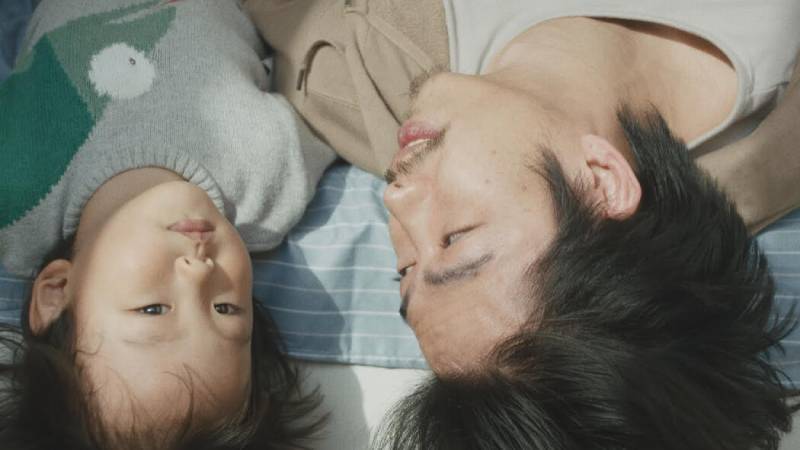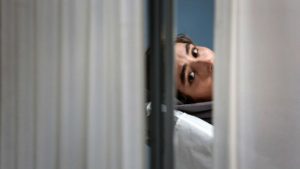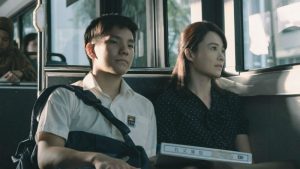In retrospect, the title might actually have been optimistic. Billed as a “love letter to cinema” and featuring seven well-regarded directors from across the globe, The Year of the Everlasting Storm brings together seven stories set and shot during the Covid-19 pandemic, mostly in the year of 2020. At times joyous, ponderous, profound, and even frustrating, the film invites its audience to reflect on the pandemic’s toll on our lives, but also on how life has, mostly, gone on much as it did before (for better or worse).
The film’s stories are compact, but far from perfunctory. A lizard and a grandmother find peace amid the afterglow of new life (Life, Jafar Panâhi), a young family struggles to adjust to life in quarantine (The Break Away, Anthony Chen), a father stays connected with his young children over video chat (Little Measures, Malik Vitthal), a surveillance company’s attempts to disrupt and destabilise the lives of journalists are documented (Terror Contagion, Laura Poitras), a mother records her choir parts and visits her daughter’s newborn child from afar (Sin Título, Dominga Sotomayor), a box of letters leads to an encounter with the past (Dig Up My Darling, David Lowery), and a white bedsheet provides the backdrop for a swarm of insects (Night Colonies, Apichatpong Weerasethakul). Seven stories diverging from a single, tragic, source, depicting the diversity of human experience, but also underscoring our fundamental, shared, humanity.

The ’90s saw an increased cultural fascination with chaos theory (colloquially, “the butterfly effect”), in particular its focus on how small changes in the initial conditions of a complex system can produce large and unpredictable differences in its resultant state. The famous “butterfly flapping its wings” metaphor seemed to catch on not only because of its inherent provocativeness but because the world was becoming vastly and irreversibly interconnected—suddenly, we could appreciate how seemingly minor events in one region might have massive impacts around the globe.
That’s what makes The Year of the Everlasting Storm important. The Covid-19 pandemic has impacted the lives of every person on the planet, an experience unique in human history that should have forced the realisation that, despite our differences, we all come from the same flesh and blood. But the 2020 pandemic was just a warm up for the climate disasters coming in our lifetimes. Unless we recognise our shared fate soon, we may end up ceding the planet back to the primeval creatures that preceded us.
It’s fitting, then, that the film begins and ends with creatures (lizards and insects specifically) that once ruled the earth in our absence. However, the two segments are decidedly different in their outlook. In Panâhi’s Life, humanity reconciles with the natural world; but in Weerasethakul’s Night Colonies, only the vestiges of humanity remain. Between these options are five tales of human resilience and hope, emphasising that the choices that will determine our fate are ours and ours alone.
The Year of the Everlasting Storm premiered in Cannes and it will show in UK cinemas soon. Stay tuned for the date.










